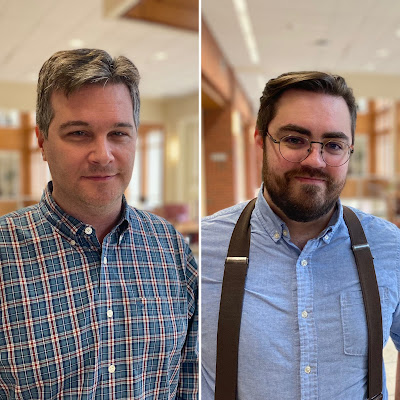Q&A: Biomedical Engineering Student Named Outstanding Graduate Research Assistant
The University of Oklahoma Graduate Student Senate has awarded Feng (Lucas) Yan, a doctoral student in the Stephenson School of Biomedical Engineering, with the Outstanding Graduate Research Assistant award. OU Engineering recently interviewed him about his experience.
I am also working on image/graphic processing utilizing machine learning to make predictions and classifications for anti-cancer drug screening and to extract features and feature weights for deep learning models to develop structure segmentation, classification and prediction in cancer detection and human organ transplantation.
Who is your advisor?
My advisor is Dr. Qinggong Tang. His experience includes biophotonics and imaging with a current focus on applying multimodal imaging techniques to resolve medical issues and transferring these techniques to clinical applications in the near future. Dr. Tang is an experienced, kind and fantastic advisor and scholar. He gives me so much support in my research and personal life. I am fortunate and honored to have the opportunity to get this award.
Tell me about your role as a graduate research assistant.
My role is to conduct research projects and mentor undergraduate students working in the lab.
What is the focus of your research?
My research focuses on multimodal optical imaging for cancer detection and therapy monitoring at cellular, animal, and clinical levels. I also conduct the pre-transplantation evaluation of human organs including kidneys, livers, lungs and image/graphic processing with machine/deep learning.
Another focus of my research is to use multi-contrast optical coherence tomography as a tool for the noninvasive imaging of human organs to conduct the pre-transplantation evaluation. This study allows us to rapidly and non-invasively scan organs to conduct a thorough evaluation of the organ's viability.
My role is to conduct research projects and mentor undergraduate students working in the lab.
What is the focus of your research?
My research focuses on multimodal optical imaging for cancer detection and therapy monitoring at cellular, animal, and clinical levels. I also conduct the pre-transplantation evaluation of human organs including kidneys, livers, lungs and image/graphic processing with machine/deep learning.
Another focus of my research is to use multi-contrast optical coherence tomography as a tool for the noninvasive imaging of human organs to conduct the pre-transplantation evaluation. This study allows us to rapidly and non-invasively scan organs to conduct a thorough evaluation of the organ's viability.
I am also working on image/graphic processing utilizing machine learning to make predictions and classifications for anti-cancer drug screening and to extract features and feature weights for deep learning models to develop structure segmentation, classification and prediction in cancer detection and human organ transplantation.
Who is your advisor?
My advisor is Dr. Qinggong Tang. His experience includes biophotonics and imaging with a current focus on applying multimodal imaging techniques to resolve medical issues and transferring these techniques to clinical applications in the near future. Dr. Tang is an experienced, kind and fantastic advisor and scholar. He gives me so much support in my research and personal life. I am fortunate and honored to have the opportunity to get this award.
What benefit does undergraduate research afford students?
My mentoring undergraduate students in the lab is to provide one or two sub-projects from our research that they can get involved in. I communicate with the students about their interests and priorities and teach them about experimental designs, data processing and statistics, coding/programming, and research paper writing.
My mentoring undergraduate students in the lab is to provide one or two sub-projects from our research that they can get involved in. I communicate with the students about their interests and priorities and teach them about experimental designs, data processing and statistics, coding/programming, and research paper writing.
Undergraduate students will be equipped to begin their studies in the lab and to report their research results in class and at local and national conferences. Most of the students working in our lab are co-first-author/co-authors of academic papers. These skills often result in obtaining scholarships, and fellowships and in some cases, contributing to successful applications to medical and graduate schools.
When do you expect to complete your doctoral degree? What do you hope to do with your advanced degree?
I expect to complete my doctoral degree in 2024. I hope to continue postdoctoral training and find a faculty position or work in the industry conducting transformative research.
When do you expect to complete your doctoral degree? What do you hope to do with your advanced degree?
I expect to complete my doctoral degree in 2024. I hope to continue postdoctoral training and find a faculty position or work in the industry conducting transformative research.



